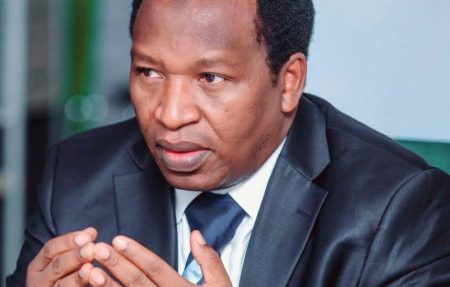The political landscape of Rivers State is currently embroiled in a contentious debate surrounding the scheduled local government elections. The Rivers State Independent Electoral Commission (RSIEC) has set August 30th as the date for the polls, a decision that has sparked fierce opposition from various quarters, including the All Progressives Congress (APC), civil society groups, and prominent political figures. At the heart of the dispute lies the legality and fairness of conducting the elections under the prevailing circumstances, particularly given the ongoing continuous voter registration exercise by the Independent National Electoral Commission (INEC) and the state’s current status under emergency rule.
The APC has vehemently opposed the election timetable, arguing that holding the polls amidst INEC’s voter registration exercise risks disenfranchising eligible voters who have recently attained voting age. The party contends that proceeding with the elections without incorporating these newly registered voters would violate a Supreme Court ruling that mandates the use of updated voter registers for elections. This concern underscores a broader anxiety regarding the potential for voter suppression and the erosion of democratic principles if the elections proceed as planned. The APC’s stance reflects a wider sentiment among critics who question the legitimacy of the exercise.
Further complicating matters is the state’s current status under emergency rule, which has raised questions about the legitimacy of both RSIEC and the state’s Sole Administrator, Vice Admiral Ibok-Ete Ibas (retd.), to organize the local government elections. Stakeholders argue that the imposition of emergency rule has altered the constitutional framework governing electoral processes, potentially rendering RSIEC’s actions ultra vires. The confluence of the ongoing voter registration and the emergency rule creates a complex legal and political conundrum, casting a shadow of doubt over the validity of the upcoming elections.
Despite the mounting criticism and legal challenges, RSIEC and the Sole Administrator have remained steadfast in their commitment to holding the elections on August 30th. They maintain that the voter register obtained in March remains valid for the purpose of the elections and that the commission has already commenced the screening of candidates for various positions. RSIEC insists that its actions are in accordance with its enabling Act, emphasizing that the election timetable was adjusted in compliance with legal provisions. They further argue that the National Assembly, which assumed legislative powers in the state following the declaration of emergency rule, has granted RSIEC the necessary clearance to conduct the polls.
This unwavering stance by RSIEC and the Sole Administrator has further inflamed tensions and deepened the divide between the opposing factions. Critics view their insistence on the August 30th date as a blatant disregard for democratic norms and a deliberate attempt to undermine the electoral process. The apparent disregard for the concerns raised by various stakeholders, including the APC and civil society groups, has fueled suspicions of a predetermined outcome and a lack of commitment to free and fair elections. The resulting impasse threatens to further destabilize the political landscape in Rivers State and erode public trust in the electoral system.
The controversy surrounding the Rivers State local government elections highlights the fragility of democratic processes and the importance of upholding the rule of law. The conflicting interpretations of legal provisions, the ongoing voter registration exercise, and the state’s status under emergency rule create a volatile mix that demands careful consideration and adherence to due process. Whether the elections proceed as planned on August 30th remains uncertain, but the current standoff serves as a stark reminder of the challenges facing democratic governance in Nigeria and the imperative of ensuring that electoral processes are conducted in a manner that is transparent, inclusive, and respects the fundamental right to vote. The ongoing legal battles and political maneuvering will ultimately determine the fate of the local government elections and the future trajectory of local governance in Rivers State.














